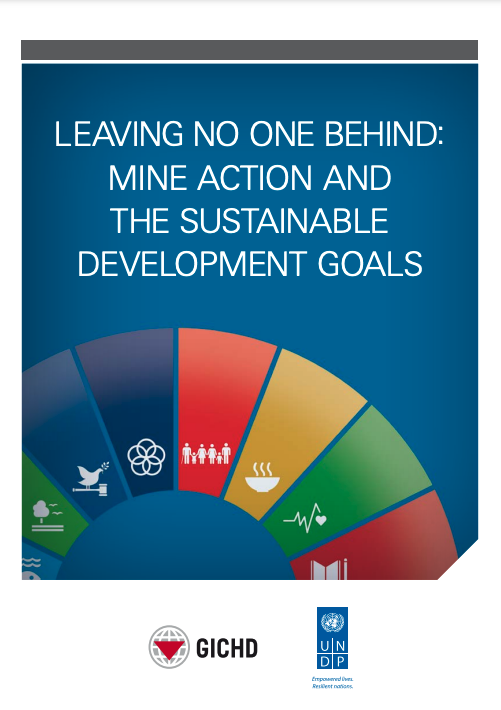Explosive ordnance risk reduction (EORR) plays an important enabling and transformative role to create the conditions for sustainable development and peace in today’s rapidly changing world. The landscape of EORR activities has altered with emerging and interconnected challenges, including increasingly protracted conflicts and environmental crises, which call for integrated responses to planning, delivery, and monitoring.
The GICHD has a central role in identifying and strengthening the connections between EORR and broader agendas, particularly those relating to humanitarian action, development, and peace efforts. Alongside its partners, the Centre has conducted studies demonstrating the need to look beyond the re-establishment of safe physical living environments and towards longer-term objectives in the design and delivery of programmes.
By further exploring and reinforcing these interconnections, the Centre aims to leverage the transformative role of EORR, increasing coherence between international and national frameworks, and supporting the realisation of collective outcomes for post-conflict stabilisation, reconstruction, and longer-term development.
Continuous efforts are needed to ensure EORR is more coherently mainstreamed into national sustainable development activities. Therefore, the GICHD continues to support the sector to enhance understanding of the significant linkages between EORR and sustainable development outcomes, with the aim of strengthening effectiveness and efficiency as well as increasing collaborative efforts across the nexus.
The Centre’s innovative and evidence-based research, alongside training and expert advice, supports the sector to align its strategies and action with that of global agendas such as the 2030 Agenda for Sustainable Development or the sustaining peace agenda. Mainstreaming EORR activities in broader sustainable development and peace planning can support EORR stakeholders to leverage strategic partnerships and join broader collaborative efforts.
To this effect, the Centre has produced a series of case studies demonstrating the contributions of mine action to the Sustainable Development Goals (SDGs) in eight countries including Angola, Jordan, Cambodia, Colombia, Bosnia and Herzegovina, Somalia, South Sudan, and Iraq. These studies explore the broader impacts of mine action in the medium and long term by assessing the different contributions of land release, victim assistance, and explosive ordnance risk education to the SDGs. The analysis also examines the importance of gender and diversity mainstreaming efforts as well as collaborative partnerships, both within and beyond the sector, for the overarching principle of ‘leaving no one behind’.
CONTRIBUTION OF MINE ACTION TO THE SDGs BY ACTIVITY IN EIGHT CASE STUDIES

The Goals
SDGs publications
The Sustainable Development Outcomes of Mine Action in Iraq
The study comprehensively maps the sustainable development outcomes of mine action activities in Iraq, using the SDGs as an analytical framework. It presents concrete examples which illustrate the impact of mine action...

- Available in Arabic, English
The Sustainable Development Outcomes of Mine Action in South Sudan
This study comprehensively maps the sustainable development outcomes of mine action activities in South Sudan, using the SDGs as an analytical framework. It showcases the contribution of land release, victim assistance, and...
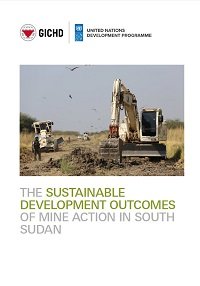
- Available in English
The Sustainable Development Outcomes of Mine Action in Somalia
This study comprehensively maps the sustainable development outcomes of mine action activities in Somalia, using the SDGs as an analytical framework. It presents concrete examples which illustrate the impact of mine action...
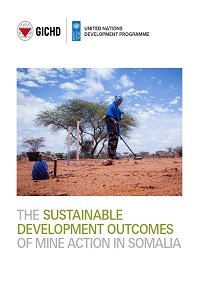
- Available in English, Somali
The Sustainable Development Outcomes of Mine Action in Bosnia and Herzegovina
The study comprehensively maps the sustainable development outcomes of mine action activities in Bosnia and Herzegovina (BiH), using the SDGs as an analytical framework. It presents concrete examples which illustrate the impact of...
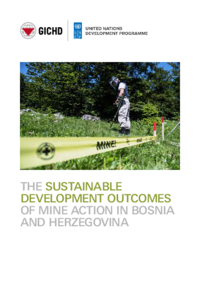
- Available in English, Bosnian
Contribuciones de la acción integral contra minas al desarrollo sostenible en Colombia
Este estudio identifica las contribuciones de la acción integral contra minas enColombia, utilizando los Objetivos de Desarrollo Sostenible como marco analítico y analiza el impacto de la liberación de tierras - desminado...
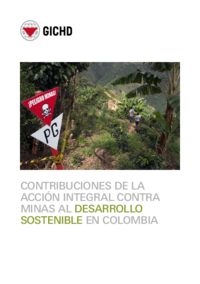
- Available in English, Spanish
The Sustainable Development Outcomes of Mine Action in Cambodia
The study comprehensively maps the sustainable development outcomes of mine action activities in Cambodia, using the SDGs as an analytical framework. It analyses and illustrates with concrete examples the impact of mine action...
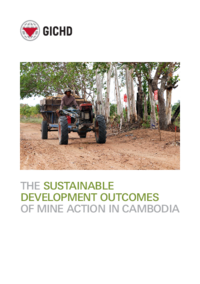
- Available in English
Linking Mine Action and the 2030 Agenda for Sustainable Development - Insights from Bosnia and Herzegovina and Lao PDR
Through case studies in two countries, Bosnia and Herzegovina and Lao PDR, this study examines the extent to which mine action efforts have been incorporated into national development planning. Likewise, it analyses the experience...
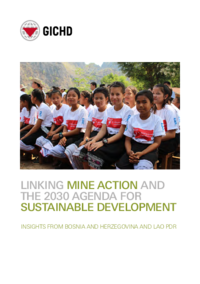
- Available in English
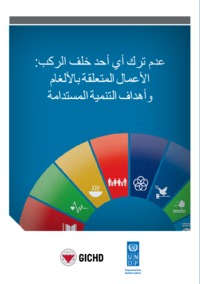
- Available in Arabic
The Sustainable Development Outcomes of Mine Action in Jordan
This study comprehensively maps the sustainable development outcomes of mine action activities in Jordan, using the SDGs as an analytical framework. It presents concrete examples which illustrate the impact of mine action...

- Available in Arabic, English
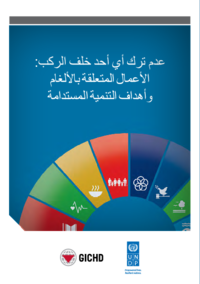
- Available in Arabic

